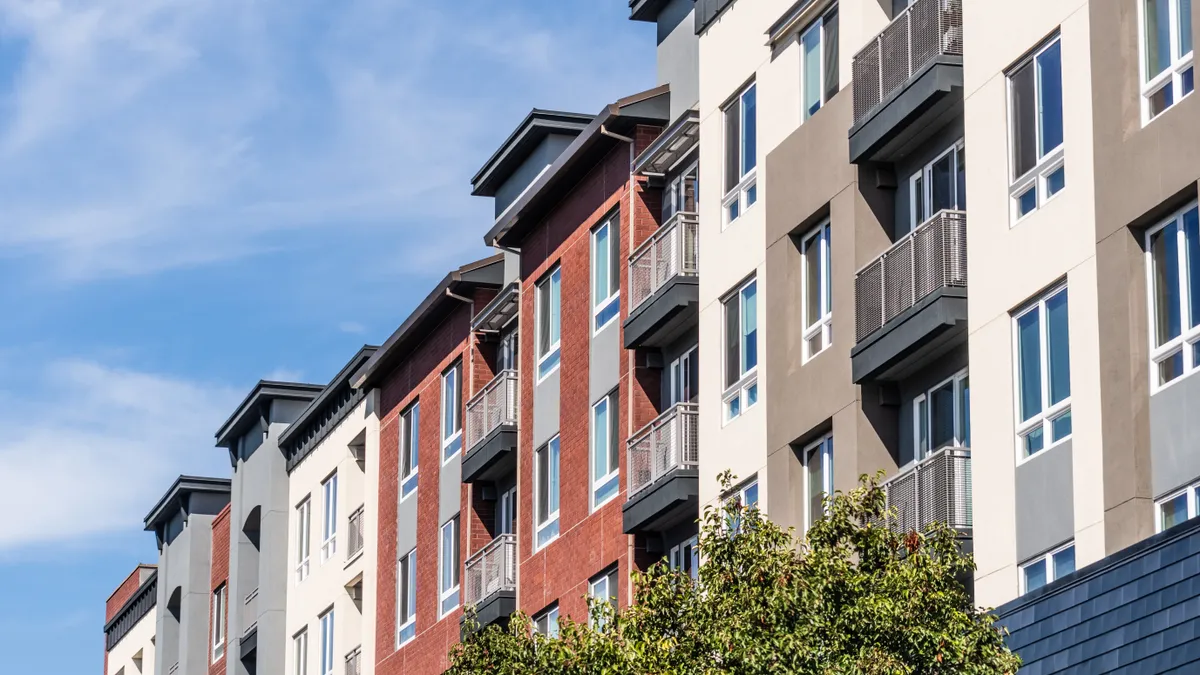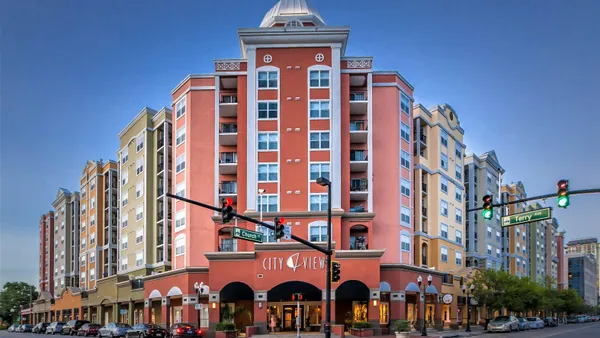Dive Brief:
- A growing number of renters are staying in their units for longer periods of time than they did a decade ago, according to a new report from Redfin.
- In total, over one-third of U.S. renters have lived in the same apartment for more than five years. One in six, or 16.6%, had lived in one place for 10 years or more in 2022, up from 13.9% in 2012. Another 16.4% had lived in their home for five to nine years, up from 14% a decade earlier.
- Gen Z renters are more likely to move between rental units within one year than any other generational cohort, due to their life stages in college or the early years of their careers, according to Redfin. At the same time, over half of baby boomer renters have remained in the same unit for five years or more, and just over one-third for over 10 years.
Dive Insight:
Out of the 50 most populous U.S. metros, Austin, Texas, which is seeing high amounts of new apartment deliveries, had the highest share of renters that move out in less than a year at 38.8%. Only 15.8% of renters did the same in New York City in 2022, because of its high cost of living, according to the report
Redfin identifies four main reasons that renters are staying put for longer now than they did 10 years ago:
- The median price of a home has more than doubled since 2012, and risen more than 40% since 2019.
- Asking rents rose more than 20% between 2019 and 2022, making moving between rental units more expensive.
- There were far fewer homes on the market in 2022 than in 2012.
- Renting has become more appealing as a lifestyle, particularly for remote workers. Some renters prefer the ability to easily relocate for work or lifestyle reasons, while others are investing in areas outside of real estate, according to Redfin.
“While the fact that people are staying longer in their rentals may mean they can’t afford to buy a home in today’s market, staying put also means they’re saving some money that could eventually go toward a down payment if they do have a goal of homeownership,” Redfin Senior Economist Sheharyar Bokhari said in a press release.
Bokhari does note that the current boom in apartment units being delivered could provide renters with more places to move at lower prices, raising unit turnover in the near future.
One issue that did not come into play for the time period examined by the study is the impact of higher interest rates, which began rising in 2023. Not only do high interest rates increase the cost of maintaining a mortgage, discouraging potential home buyers, they also raise expenses for property owners, resulting in higher rents.
Staying put
Aligning with Redfin’s observations, a number of major apartment REITs reported both record low-unit turnover and a decline in residents moving out to buy homes this year.
For instance, Chicago-based EQR renewed 61% of its residents in the first quarter of 2024, contributing to a 96.5% occupancy rate, according to the REIT’s most recent earnings call. At the same time, only 7.2% of its residents had moved out to buy a home.
“One of the real highlights of the quarter was our turnover, which is the lowest we have ever seen,” said Michael Manelis, EQR’s chief operating officer, on the earnings call. “Our focus on customer satisfaction, harnessing data and leveraging our centralized renewal team to drive results is definitely having an impact here.”
Arlington, Virginia-based AVB has seen a similar trend, with only 7% of its residents moving out to buy in the first quarter — down significantly from the company’s long-term average of 16% to 17%. Ben Schall, AVB’s CEO, attributed this to the higher cost of renting versus owning in the REIT’s target markets during the first quarter earnings call.











